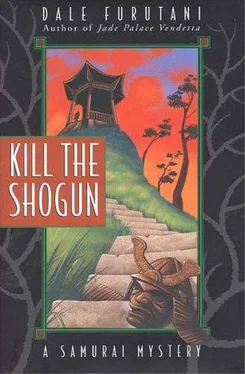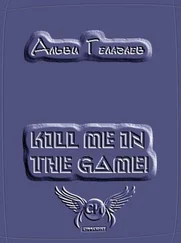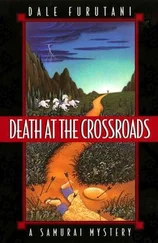Dale Furutani - Kill the Shogun
Здесь есть возможность читать онлайн «Dale Furutani - Kill the Shogun» весь текст электронной книги совершенно бесплатно (целиком полную версию без сокращений). В некоторых случаях можно слушать аудио, скачать через торрент в формате fb2 и присутствует краткое содержание. Год выпуска: 2011, ISBN: 2011, Жанр: Исторический детектив, на английском языке. Описание произведения, (предисловие) а так же отзывы посетителей доступны на портале библиотеки ЛибКат.
- Название:Kill the Shogun
- Автор:
- Жанр:
- Год:2011
- ISBN:0688158196
- Рейтинг книги:3 / 5. Голосов: 1
-
Избранное:Добавить в избранное
- Отзывы:
-
Ваша оценка:
- 60
- 1
- 2
- 3
- 4
- 5
Kill the Shogun: краткое содержание, описание и аннотация
Предлагаем к чтению аннотацию, описание, краткое содержание или предисловие (зависит от того, что написал сам автор книги «Kill the Shogun»). Если вы не нашли необходимую информацию о книге — напишите в комментариях, мы постараемся отыскать её.
Kill the Shogun — читать онлайн бесплатно полную книгу (весь текст) целиком
Ниже представлен текст книги, разбитый по страницам. Система сохранения места последней прочитанной страницы, позволяет с удобством читать онлайн бесплатно книгу «Kill the Shogun», без необходимости каждый раз заново искать на чём Вы остановились. Поставьте закладку, и сможете в любой момент перейти на страницу, на которой закончили чтение.
Интервал:
Закладка:
Okubo shook his head, as if recovering from a dream. Perhaps he was already insane, he thought, daring to think thoughts that were forbidden and deadly.
Honda was also staring at something, but in this case he felt no power emanating from it. It was a simple, earthenware teacup filled with the frothy, bitter brew that resulted when tea was prepared in the formal way.
“Is something wrong, Honda-sama?”
Honda looked sharply at his companion, the man who had prepared the tea with nonchalant elegance. He was too sensitive to the moods of the people around him to make a man like Honda feel really safe in his presence.
“No, nothing,” Honda said gruffly.
But, of course, there was something wrong. What he was engaged in went against his entire life. He was a rough warrior, and offering his life and services to the Tokugawas was the twin star that guided his actions. Now he was doing something that made him feel embarrassed and ashamed. Yet, with the changing order of Japan, he believed that he had to do this, and that he would have to change, too.
The Gods knew that Ieyasu-sama had changed. Honda was with Ieyasu almost from the beginning, when Ieyasu was a youth scratching to retain control of his own fief, buffeted by more powerful daimyo on all sides of him. Initially, Ieyasu had been cautious to a fault. They even invented a proverb about Ieyasu, “tapping on a stone bridge,” to show his extreme caution in all things. He knew his limitations and refused to exceed them.
Then, as his fortunes changed, his attitude changed, also. Now it seemed like he accepted the awesome title of Shogun as something owed him for his years of struggle, scheming, and planning. But Honda knew the life of a man, any man, could be ended with a sword stroke, so all things of this earth were ephemeral. It didn’t even take a sword stroke; Ieyasu had almost been assassinated by an unseen gunman sitting in a fire tower. True, there was no chivalry in such a killing, but Ieyasu would be just as dead if the bullet hit him, regardless of the conventions of bushido, just as Nakamura was dead. Honda snorted.
“Did you say something, Honda-sama?”
Honda looked up from his tea. He held the cup in two hands, one hand on the bottom, the other cupping the side, in the proper fashion. Despite his present circumstances, he wanted to show he was not a complete barbarian. “No,” Honda said. He put his teacup down. “Come on,” he said, “let’s get on with it.”
CHAPTER 9
Inky water that
mirrors only the surface.
What lies underneath?
Welcome, welcome!” The gap-toothed man at the door gave an oily bow, rubbing his hands together in anticipation as Kaze and the vegetable merchant entered. The merchant had insisted that he treat Kaze to a drink to thank him for his help with the gamblers, and Kaze had seen no graceful way to avoid his landlord’s unwanted generosity.
The building looked like a large house, and there was no sign on the front. Like many buildings in Edo, it had a ramshackle, hastily built look to it. Much of the town was being reconstructed from whatever lumber and materials were available. The wood joinery, normally so meticulous and carefully fitted by Japanese carpenters as they put together a house like a giant puzzle, was sloppy and ill-fitted, because so much of the construction was done by inexperienced craftsmen. Only the rich, like the new daimyo flooding the city, could afford real craftsmen.
In the entry, Kaze took off his sandals and stepped up to the board floor. He was carrying his sword, having given up even the pretext of not being a ronin. After his encounter with the gamblers, it was obvious to the vegetable merchant and his household that he was not just a street entertainer.
“Just a drink tonight,” the merchant said.
The man with the gap teeth, who wore a perpetual, if insincere, smile, led them into the depths of the building. Behind one of the ratty shoji screens that lined the hallway, Kaze heard the rattle of dice and a thump as the wooden dice cup was slammed to the mat in the room. A small shout escaped from a group of men as the cup was removed to reveal the results.
“Whose establishment is this?” Kaze asked.
The merchant gave a weak smile but didn’t otherwise respond.
Oblivious to the merchant’s discomfort, the gap-toothed man said, “This is Boss Akinari’s place, Samurai-sama. Here you’ll find the cheapest sakè and the fairest dice in all of Edo. Please enjoy yourself and come back. Your friend is a regular here. Most of our customers are regulars. That’s because they know that Boss Akinari always runs a fair game.”
Kaze looked at the merchant with one eyebrow raised. The merchant gave him a sick smile. The merchant had more than just a drink on his mind when he invited Kaze. Obviously, he was testing the waters to see if the arrangement he made with Boss Akinari’s men was valid and to see if he was still welcome at the gambling house. He had brought Kaze along to provide some protection.
The man slid back a shoji screen. It looked no different from any of the others in the hallway, but in this room were a half-dozen men drinking instead of gambling. Kaze and the merchant found an unoccupied spot on the tatami mat and sat facing each other. They blocked out the others in the room, as Japanese are trained to do, creating their own private space in a crowded environment.
Kaze and the vegetable merchant ordered sakè, and the gap-toothed man scurried off. Soon he was back with an iron kettle filled with hot water. In the water were two porcelain flasks. He put the kettle down and handed the two men sakè cups; small porcelain saucers, decorated with a chrysanthemum, done in blue paint. The merchant filled Kaze’s cup with sakè and, in the Japanese manner, Kaze returned the compliment and filled the merchant’s cup.
As they were drinking, the shoji screen slid open and Nobu stuck his head in. The big wrestler looked around, apparently just checking things in the room. When he saw Kaze and the merchant, he seemed surprised. He dipped his head in a greeting, then gently closed the door.
In a few minutes, he returned. He walked up to Kaze, who looked at the large man with a quizzical look.
“Boss Akinari would like to talk to you,” Nobu said.
“Me?” Kaze asked, puzzled.
“Yes. I told him about you, and he wants to have a drink with you.”
Kaze shrugged and got up. The merchant also started to get to his feet, and Nobu put a hand on his shoulder and pushed him down. “No. Just the ronin,” he said.
Kaze was led through the building to the back. The hall was just like the entrance, lined with nondescript shoji screens. Nobu slid a screen open.
Sitting alone in a dimly lit room was a large man in a blue kimono. He wasn’t as big as Nobu, but his bull-like neck and massive arms proclaimed him a man not afraid to use physical force to implement his will. His head was shaved, in the manner of a priest, and he wore his kimono open, as you might on a hot summer’s evening. Across his chest was a blue tattoo that outlined, in meticulous detail, the scales of a dragon. The tattoo showed clearly that this was no holy man. This type of tattoo was favored by palanquin porters and toughs, and the man sitting in the room didn’t have the bowed legs of a porter.
The man looked Kaze over carefully. Boss Akinari was surprised that the ronin was just of average height. He expected a bigger man, considering how the ronin took care of three of his best men.
“Sit down. Have a drink,” Boss Akinari said gruffly.
Kaze shrugged and sank to the mat.
As Boss Akinari handed Kaze a sakè cup and started to fill it from a flask, Nobu slid the shoji shut.
Читать дальшеИнтервал:
Закладка:
Похожие книги на «Kill the Shogun»
Представляем Вашему вниманию похожие книги на «Kill the Shogun» списком для выбора. Мы отобрали схожую по названию и смыслу литературу в надежде предоставить читателям больше вариантов отыскать новые, интересные, ещё непрочитанные произведения.
Обсуждение, отзывы о книге «Kill the Shogun» и просто собственные мнения читателей. Оставьте ваши комментарии, напишите, что Вы думаете о произведении, его смысле или главных героях. Укажите что конкретно понравилось, а что нет, и почему Вы так считаете.












